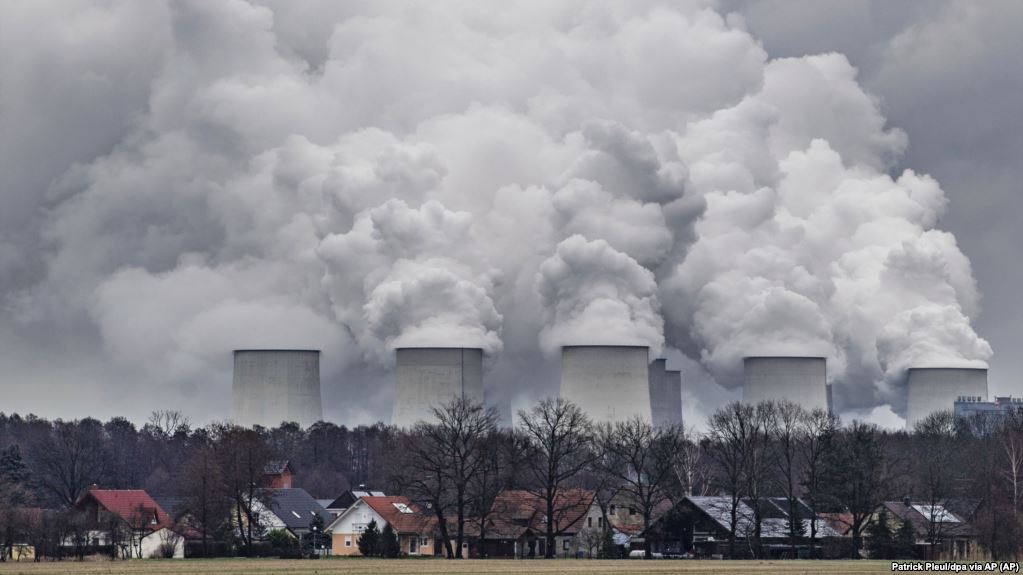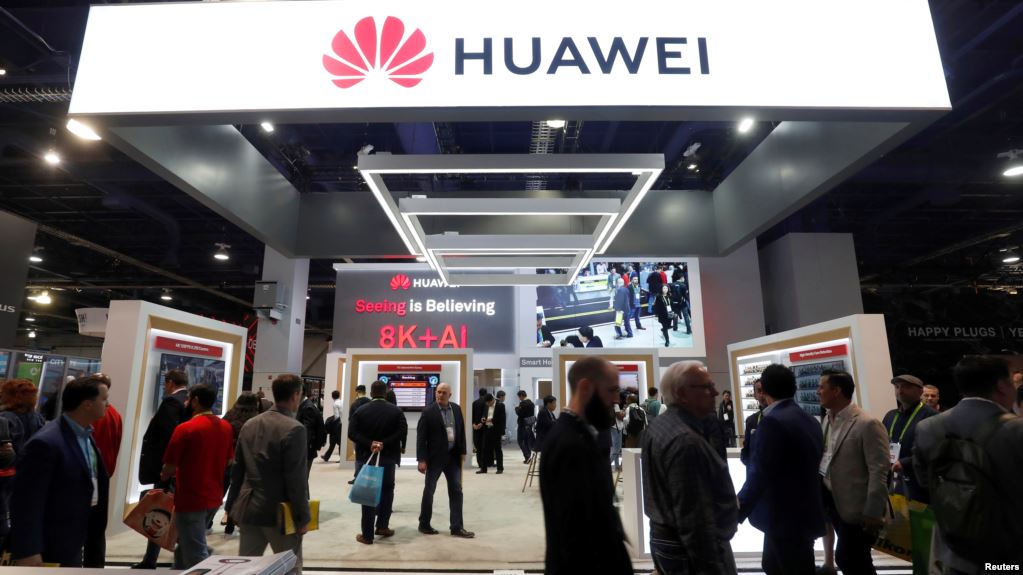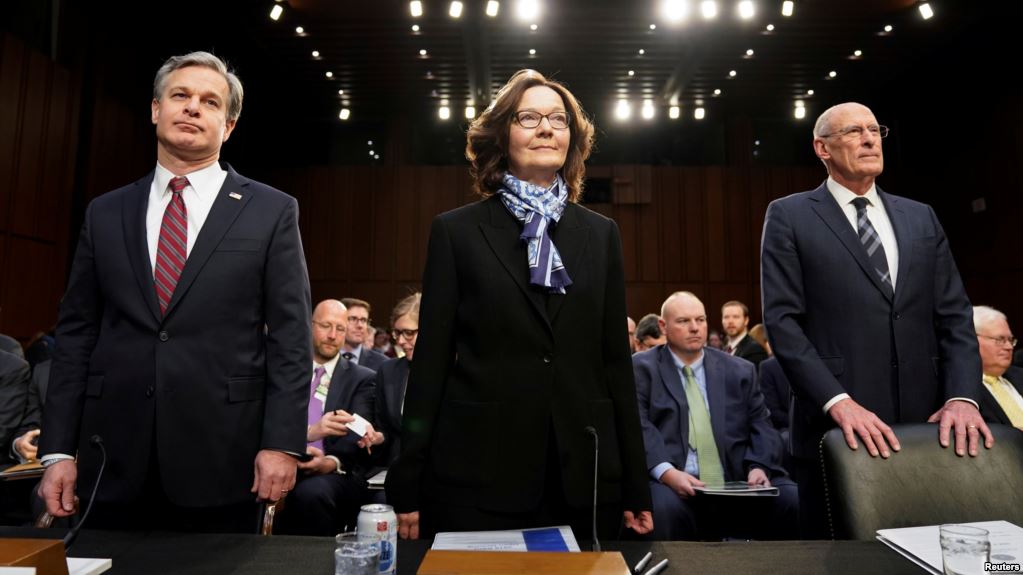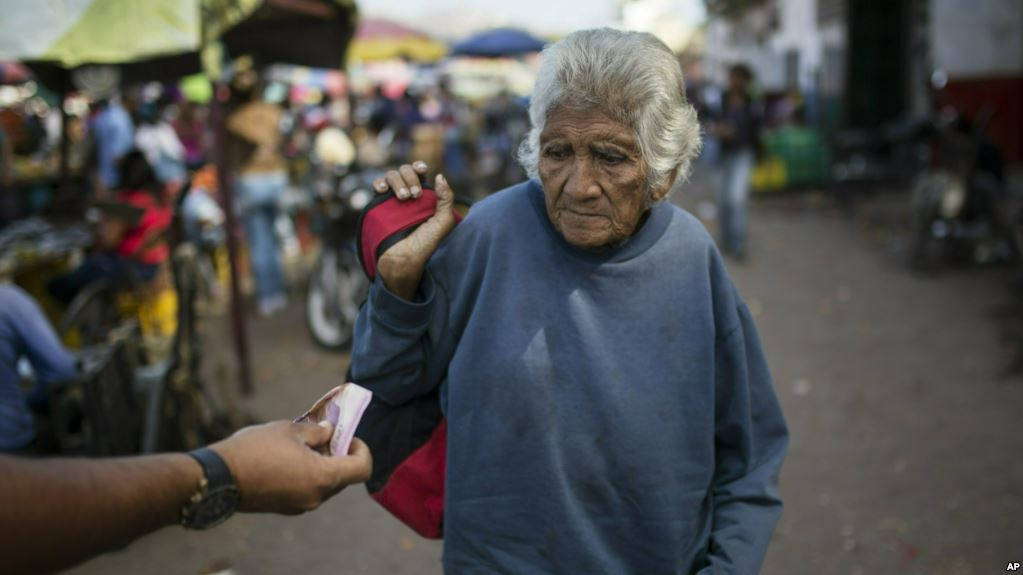뉴스&스피킹(영자신문)
하루 10분이면 영어에 대한 두려움을 극복하고 누구나 유창하게 영어를 구사하실 수 있습니다.
-
 Germany Aims to End Coal Use by 2038 at the Latest A German government-appointed group has proposed that Germany stop burning coal to make electricity by the year 2038 at the latest. The proposal is part of the nation’s efforts to slow a general warming in Earth’s atmosphere, often called climate change.
Germany Aims to End Coal Use by 2038 at the Latest A German government-appointed group has proposed that Germany stop burning coal to make electricity by the year 2038 at the latest. The proposal is part of the nation’s efforts to slow a general warming in Earth’s atmosphere, often called climate change.
The German group, called the Coal Commission, reached a deal early Saturday following months of debate. Other coal-dependent countries were closely watching the negotiations.
Germany gets more than a third of its electricity from burning coal, which creates large amounts of carbon dioxide and other gases linked to climate change.
The 28-member commission represents mining areas, power companies, scientists and environmental activists. The group suggested that its decision be reconsidered in 2032. That could bring forward the elimination of coal burning to as soon as 2035.
The plan calls for billions in federal spending to help affected areas deal with the economic effects, and to protect industry and the public from higher electricity prices. The move away from coal will also require major changes to Germany’s power system, the commission members said.
The decision still needs government approval.
Johan Rockstroem is the director of the Potsdam Institute for Climate Research. He told the Associated Press that the whole world is watching how Germany deals with the decision. The German economy is based on industry and engineering, and is the fourth largest economy in the world.
The plan calls for Germany’s coal-burning power stations to slowly suspend operations to reduce the production of greenhouse gases. Currently, Germany’s coal plants produce the largest amount of carbon dioxide of any country in Europe.
The commission’s plan leaves open which plants should be closed first. The plan says it is a decision the government needs to negotiate with the plants’ operators, the German news agency dpa reported.
The commission suggests that in the next 10 years, the government should help create up to 5,000 new jobs in the affected areas whenever coal mining is discontinued. These regions are in the states of North Rhine-Westphalia, Brandenburg, Saxony-Anhalt and Saxony. They should also get federal support totaling $45.6 billion over the next 20 years.
Germany has agreed on an “energy transition” that involves exchanging fossil fuels with renewable resources, such as wind power and energy from the sun.
Last year, renewables provided more energy to Germany than coal for the first time ever. But removing coal from power production entirely is proving much more difficult.
The reduction in coal will require an increase in renewable resources. And — at least for now — the country will have to burn more natural gas, which produces about half the amount of greenhouse gases as coal.
The environmental activist group Greenpeace wants all coal plants closed by 2030. It praised the commission’s decision, saying Germany finally has a plan for how it can become coal-free.” But the group also said the measures were not large and fast enough.
Other environmental groups welcomed the commission’s suggestion that the Hambach Forest in western Germany should be saved. The ancient woodland was at the center of anti-coal protests last year.
Energy company RWE’s plans to cut down half of the Hambach Forest to expand a mine led to demonstrations. For months, protesters prevented workers from entering the area.
I’m Pete Musto.View -
 US–China Trade Talks Complicated by Huawei Charges Leaders from the United States and China will meet in Washington, DC this week to try to decrease trade tensions between the two countries. But the talks are complicated by a dispute about the Chinese technology company Huawei.
US–China Trade Talks Complicated by Huawei Charges Leaders from the United States and China will meet in Washington, DC this week to try to decrease trade tensions between the two countries. But the talks are complicated by a dispute about the Chinese technology company Huawei.
On Monday, the government of U.S. President Donald Trump announced criminal charges against Huawei. American government lawyers say the company has violated U.S. restrictions against sales to Iran.
In addition, they say Huawei stole trade secrets from the American company, T-Mobile. They say Huawei engineers secretly took photos of a robot made by T-Mobile and tried to take part of it from T-Mobile’s lab.
Huawei says it settled the dispute with T-Mobile in 2017.
American government lawyers have also charged Huawei’s chief financial officer Meng Wanzhou. Meng is being held in Canada, where she was arrested in December.
Even with these conflicts, observers say the trade talks would likely continue. However, they warn the Huawei issue may mean the sides may not reach any serious agreement.
If they do not come to any official understanding before March 1, the U.S. will sharply increase taxes on $200 billion worth of Chinese imports.
China answers
The Chinese foreign ministry has called on the U.S. to end its campaign against Huawei and other Chinese companies, calling the actions “unreasonable.”
Huawei also rejects the U.S. charges. The company is one of the world’s biggest providers of phone and Internet equipment; half of its sales come from outside China. For the past 10 years, the company has denied U.S. accusations that its equipment could permit it to spy for China. It says the U.S. has no evidence to support the accusations.
U.S. concerns
On the U.S. side, the Huawei charges show some officials’ and business leaders’ main objections to Chinese actions. They argue that Chinese industries require U.S. and other foreign companies to share technology in exchange for access to Chinese buyers. They also say that Chinese industry insiders sometimes steal information.
Robert Lighthizer is the U.S. trade representative and the lead negotiator in this week’s talks. He wants China to strengthen its protections of intellectual property. He also wants it to stop unfairly supporting state-owned businesses.
But in earlier talks, Chinese officials have not shown any interest in accepting U.S. demands. Chinese officials deny the claim that they force U.S. companies to share technology. And they say supporting their state-owned companies and gaining new technology is critical to China’s economic development.
What about trade?
U.S. officials say the dispute over Huawei and other Chinese businesses is separate from the trade issues to be discussed this week.
Chinese officials have already offered to buy more from the U.S. and open more industries to U.S. companies. In return, they may ask the U.S. to remove the taxes that Trump place on some Chinese products last year.
Derek Scissors, a China expert at the American Enterprise Institute, commented on the idea. He said China would likely accept such a deal, if it were offered.
“If they think they can get the deal that they want, they won’t cancel the talks over Huawei,” he said.
I’m Caty Weaver.View -
 US Intelligence Contradicts Trump on N. Korea, Iran, IS Threats America’s national intelligence chief says North Korea is unlikely to give up all of its nuclear weapons. The statement contradicts President Donald Trump’s claim of progress on denuclearization.
US Intelligence Contradicts Trump on N. Korea, Iran, IS Threats America’s national intelligence chief says North Korea is unlikely to give up all of its nuclear weapons. The statement contradicts President Donald Trump’s claim of progress on denuclearization.
Director of National Intelligence Dan Coats spoke to members of the Senate Intelligence Committee on Tuesday.
He said “we currently assess that North Korea will seek to retain its WMD (weapons of mass destruction) capabilities and is unlikely to completely give up its nuclear weapons and production capability because its leaders ultimately view nuclear weapons as critical to regime survival.”
Trump and Kim met in Singapore last June. The two promised to work toward the complete denuclearization of the divided Korean Peninsula. But progress has been limited.
The U.S. has demanded full information from North Korea about its nuclear and missile sites. North Korea is seeking an end to economic restrictions against it. The government also wants a peace treaty to officially end the Korean War.
Trump is planning a second meeting with North Korean leader Kim Jong Un in February. Trump met with North Korea’s nuclear issues negotiator Kim Yong Chol on January 18. He said afterwards that the two sides had made “a lot of progress” on denuclearization.
Iran and Islamic State
Coats met with the Senate to present the yearly Worldwide Threat Assessment of the U.S. Intelligence Committee. U.S. Central Intelligence Agency Director Gina Haspel, and Federal Bureau of Investigation Director Christopher Wray were also there.
Coats told the committee that Iran “is not currently undertaking the key nuclear weapons-development activities.” Iran had agreed to give up its nuclear activities in exchange for trade and investment from the West.
Last year, Trump withdrew the U.S. from the Iran nuclear deal negotiated earlier under President Barack Obama. Trump called it “the worst deal ever.” And Iran is threatening to build up its nuclear activities if the country does not gain from the promised trade and investment.
The report also said the Islamic State group “remains a terrorist and insurgent threat” inside Iraq. The terrorist group also operated in Syria where Trump has ordered a full withdrawal of American troops.
When asked for her assessment, CIA Director Gina Haspel said “They’re still dangerous.” She added that they still command “thousands of fighters in Iraq and Syria.”
Russia and China
Coats also spoke of Russia and China seeking to expand their reach around the world. He said, “Moscow’s relationship with Beijing is closer than it’s been in many decades.”
The intelligence report warned about Russia. U.S. intelligence agencies found last year that Russia had interfered in the 2016 presidential election to help Trump.
Coats told the committee that Russia and perhaps other countries will likely use social media and other means to influence the 2020 U.S. presidential election.
Hai Do adapted this story for Learning English with news reports from Reuters and the Associated Press. Caty Weaver was the editor.View -
 Two Presidents, Too Little Food for Venezuelans The United States says recognition of opposition leader Juan Guaido as Venezuela’s interim president is the only way to restore democracy in that country. Russia and China, however, continue to support President Nicolas Maduro.
Two Presidents, Too Little Food for Venezuelans The United States says recognition of opposition leader Juan Guaido as Venezuela’s interim president is the only way to restore democracy in that country. Russia and China, however, continue to support President Nicolas Maduro.
Venezuelan Elizabeth Pineda is preparing for things to get even worse. A retiree, Pineda receives a monthly retirement pay of 18,000 bolivars, or about $6. She also earns money as a fortune teller, telling people what she sees in their future. And, she says, the future is telling her that President Nicolas Maduro will not leave quickly or quietly.
“The government is going to strangle us even more with their bad decisions and shamelessness,” Pineda said while sharing a meal with two friends. The food cost under two dollars. But, the three friends said they did not have enough money individually to buy it.
Economists agree that Venezuelans are likely to suffer as the current situation between Guaido and Maduro continues.
Maduro appears to have the support of the country’s military. He has accused the U.S. and Guaido of plotting to overthrow him. Maduro says the U.S. then led other nations to recognize Guaido as Venezuela’s leader.
That makes it very hard for Maduro’s government to get and control its oil money and holdings overseas. The U.S.-based oil company Citgo is a subsidiary of Venezuela’s national oil company PDVSA. And Venezuela has $1.2 billion in gold in the Bank of England.
Maduro was elected to a second six-year term in hotly disputed elections held last May. Many opposition candidates were barred from competing for the office. Opposition parties boycotted the voting as a result. And the country’s National Assembly did not recognize the results.
Over the weekend, some European Union nations threatened to recognize Guaido as interim president if Maduro does not announce new elections soon.
Francisco Rodriguez is chief economist of New York-based Torino Capital. He said, “If Maduro stays in power, Venezuela could suffer a humanitarian catastrophe.”
Rodriguez compared the situation in Venezuela to what happened to Libya in 2011. At that time, the U.S. government froze Libya’s assets in answer to Libya’s campaign against protesters during the Arab Spring uprising. The U.S. action led to a more than 70 percent drop in the North African country’s oil production.
Venezuela has one of the world’s largest oil reserves. But its current oil production is only one third of what it was when the late Hugo Chavez took power in 1999.
The country currently sells 500,000 oil barrels a day to processors in the U.S. Without the U.S. market, the Maduro government can sell them to friendly countries like Russia and China, or even India, Malaysia and Thailand.
Maduro is still supported by China and Russia. Both would likely veto any international restrictions proposed by the U.N. Security Council. But processing international payments is difficult without American or European banks. And the cost of oil shipping would be much higher to more distant markets.
Venezuela depends almost entirely on oil exports for money. This means there will be even less money for food. The country of 29 million people is already facing a severe economic crisis and food shortage.
Russ Dallen is with the investment bank Caracas Capital. He said a loss of fast money from Citgo and the U.S. market will crush already weakened oil production in Venezuela. The country’s economy would shrink and inflation will rise, he said, leading to “more starvation and more people fleeing the country.”
For Elizabeth Pineda, the workings of the economy make little sense. But to remove Maduro from leadership, she said, “We’re ready to eat bread and water if we have to.”
I’m Caty Weaver.View -
 there is no contents.View
there is no contents.View

